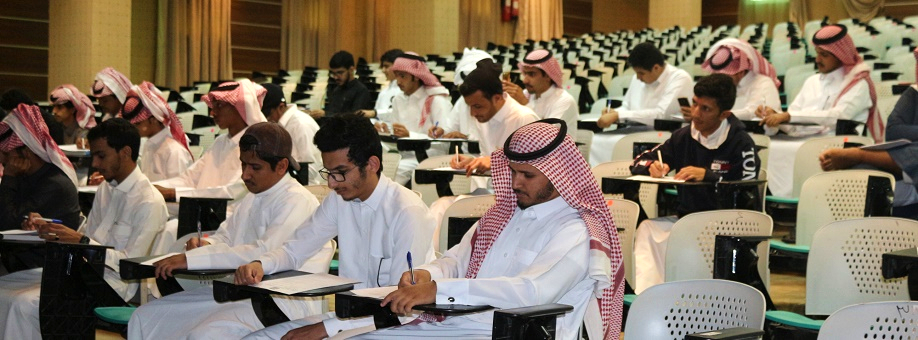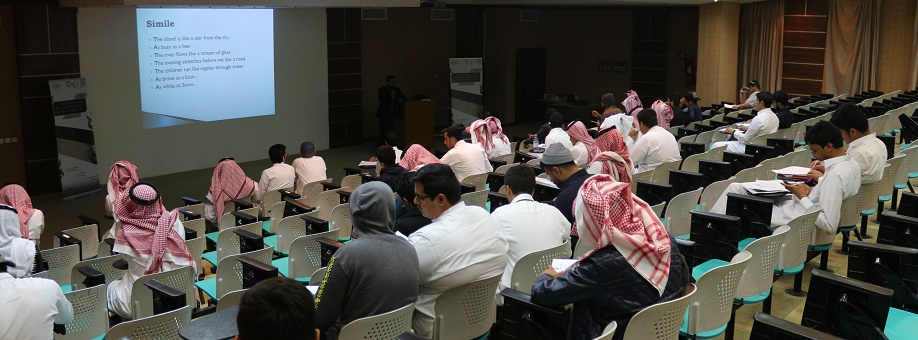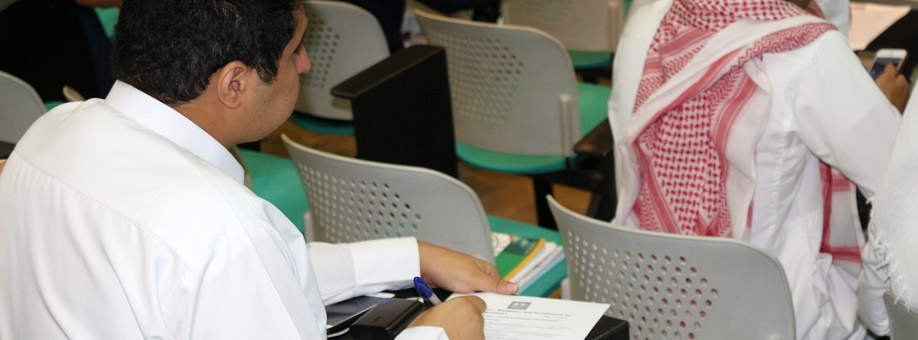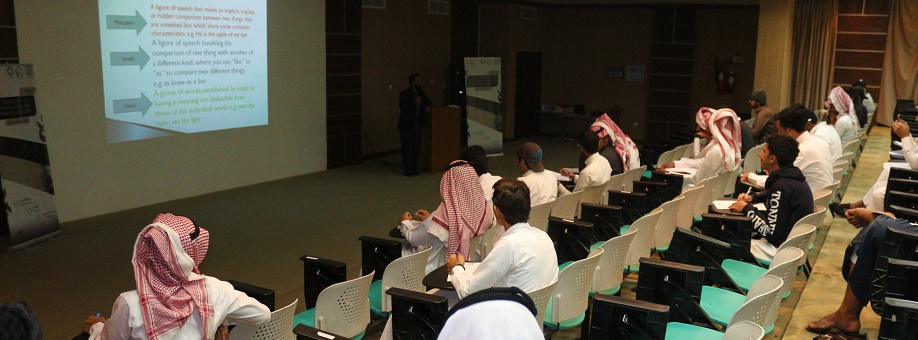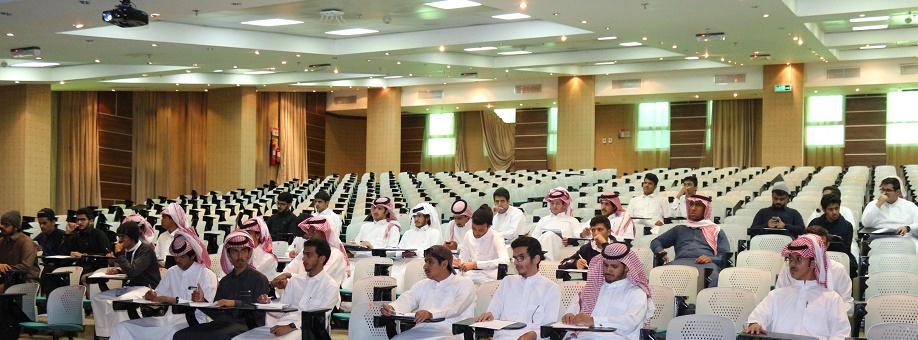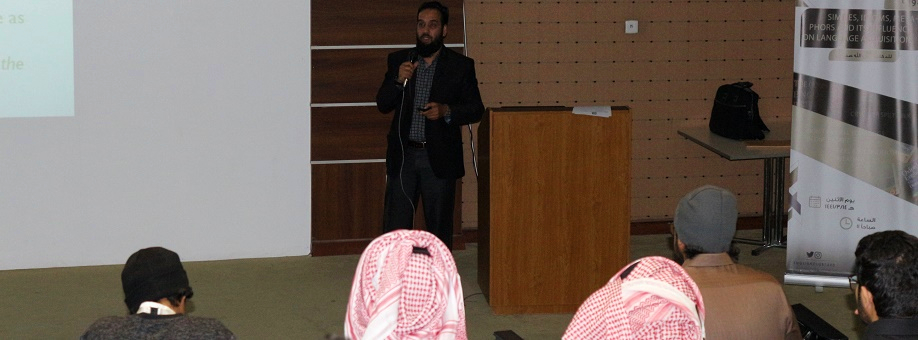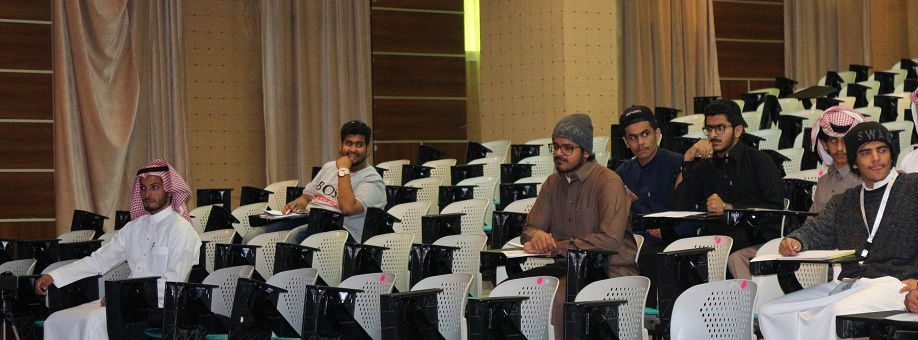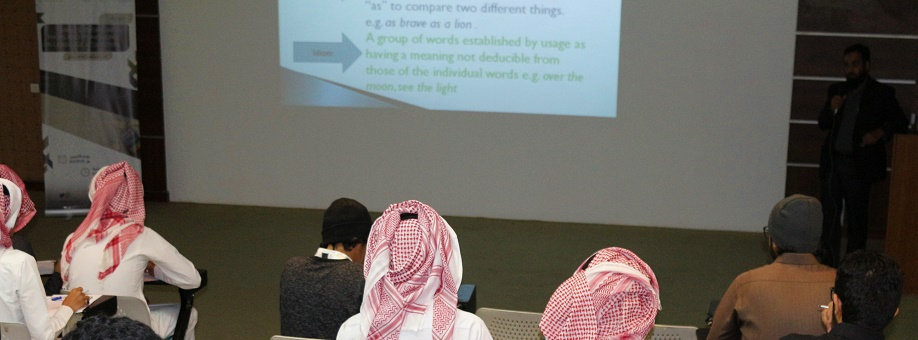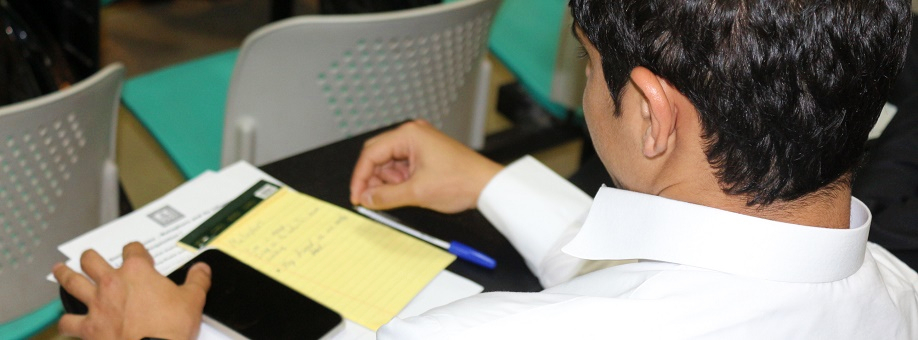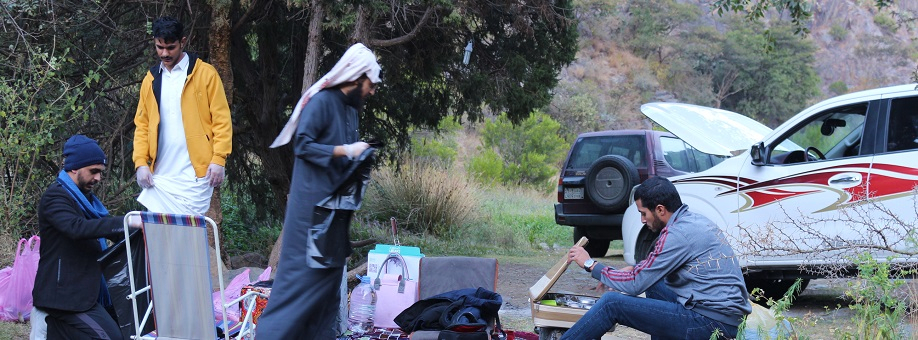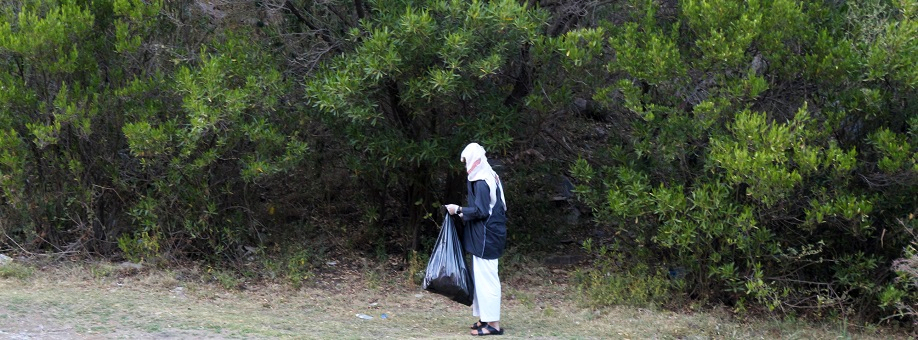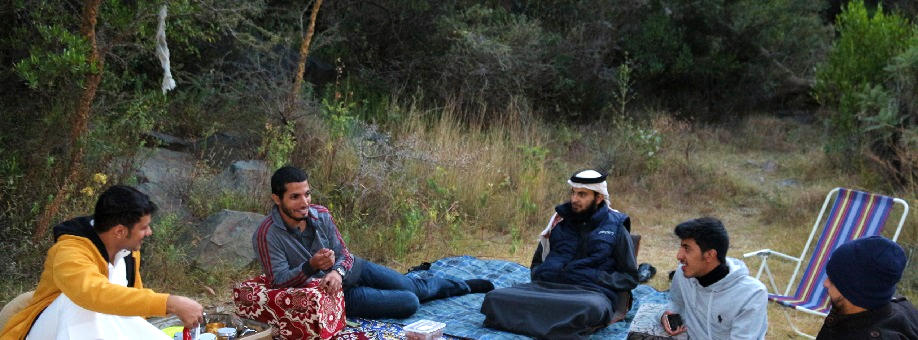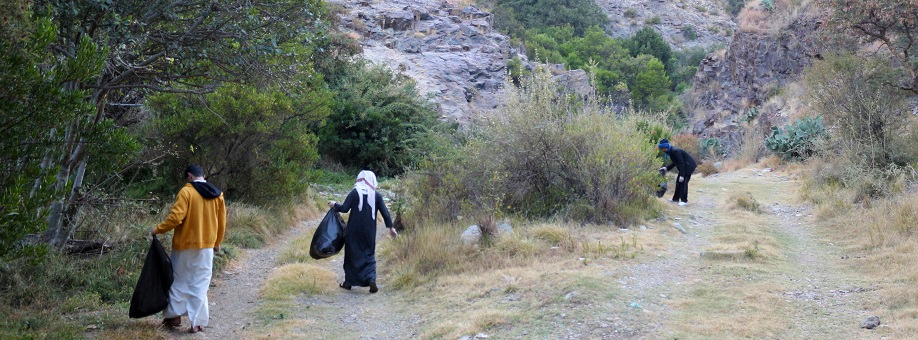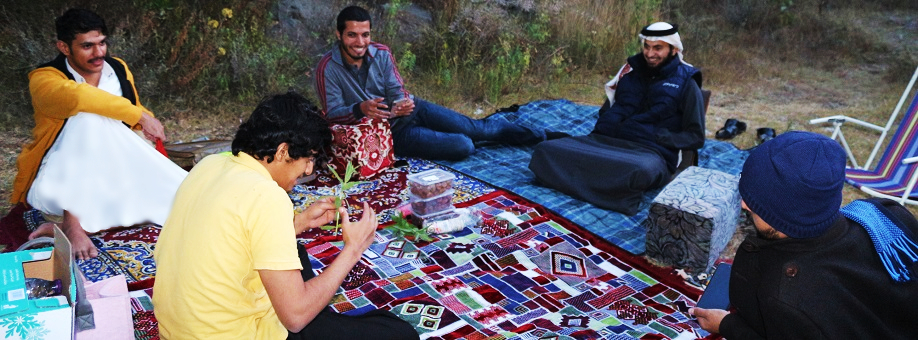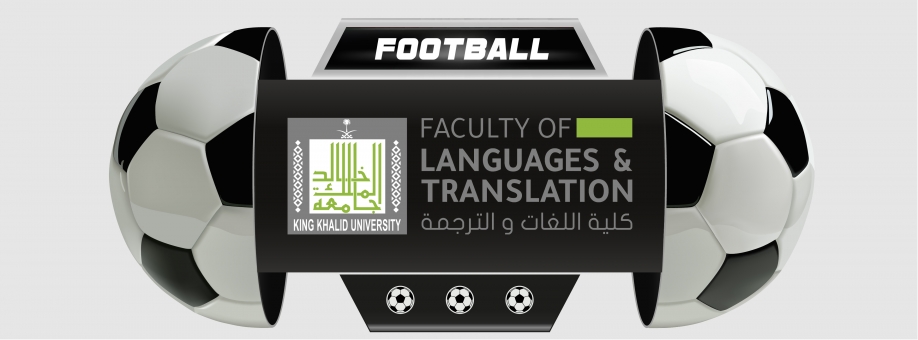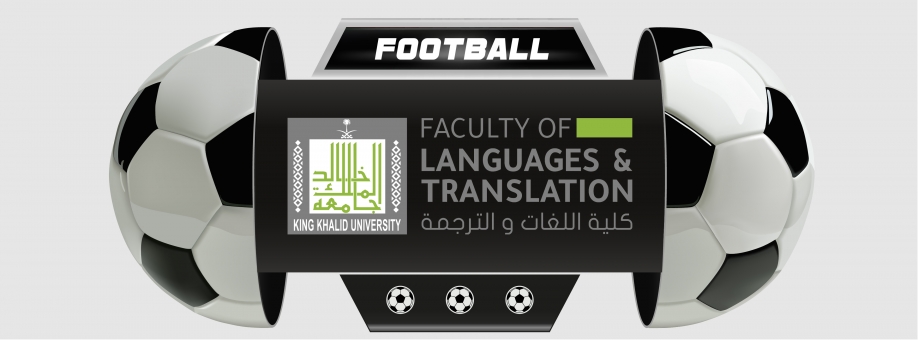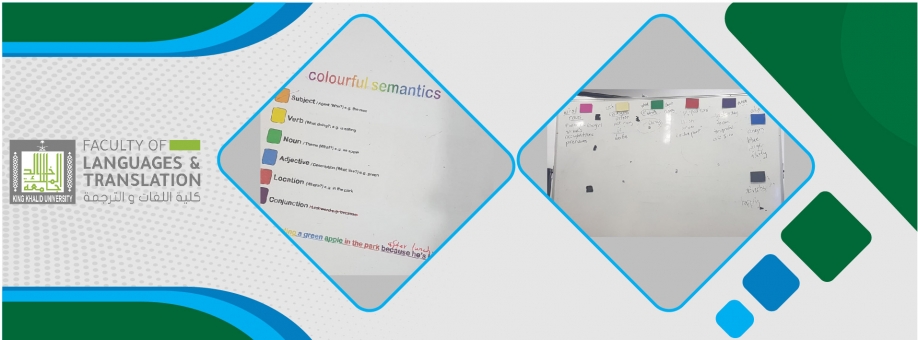English Club Sponsors Workshop on Figurative Language
Dr. Ahlullah Siddiqui delivered an interactive presentation on similes, metaphors, and idioms on behalf of the Faculty of Languages and Translation (FLT) and the English Club. The well-attended seminar included many students from the FLT and various other colleges. The purpose of the event was to discuss the importance of figurative language in learning English.
Dr. Siddiqui began by defining the different types of figuratives in the English language. He explained that we use metaphors, similes and idioms to make otherwise dull language or topics more interesting or dramatic. "Figurative language is a way of dressing up plain, everyday English and making it unique and fun. It allows speakers and writers to put their own style into language," he said. Figuratives also make the subject of a conversation or writing more relatable to many people and thereby can enhance understanding through greater clarity. Dr. Siddiqui then discussed other types of figurative language, including hyperbole, irony, etc. He noted that figuratives bring emotion, emphasis and a sense of memorable style or poetry to important concepts or points. "Colourful language provokes thoughts and emotions and adds spice to our language, engaging the audience. I am so happy to be sharing the more esoteric aspects of the English language with all of you. I encourage you all to improve your skills and language abilities continually," he concluded.
After the initial presentation, the audience participated in an exercise that helps explain the differences among various forms of figurative language. The students deciphered the latent meaning in phrases such as "time is money" and "icing on the cake". At the conclusion of the exercise, Dr. Siddiqui and the audience reviewed the figurative language as a group.
Special thanks to English Club Director Mr. Faisal Al Fadhil and the English Club for organizing the event and making this useful event possible.
The Faculty of Languages and Translation is committed to providing world-class language education and empowering the students with the tools to succeed in challenging academic programs.
Date: 11/13/2019
Source: Faculty of Languages and Translation

